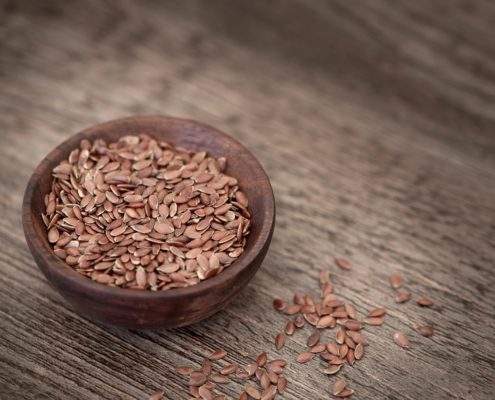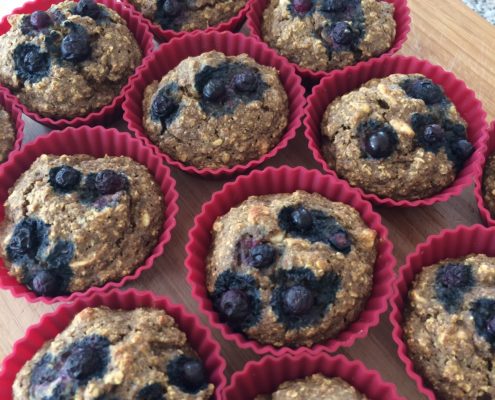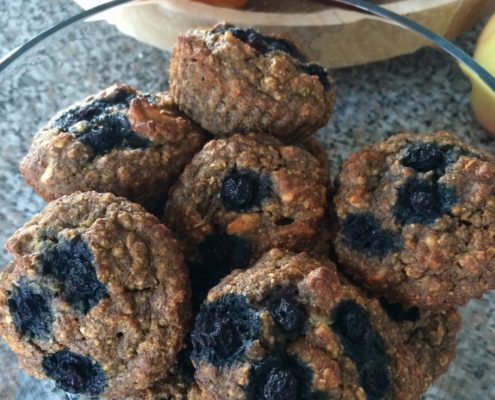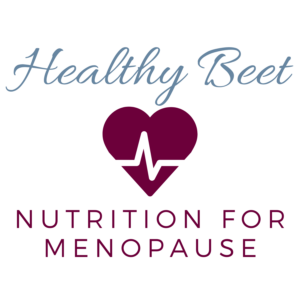Foods to Reduce Night Time Hot Flashes
Do you get hot flashes?
Are they mostly at night?
Maybe they set the bed on fire (but not in that good way)?
Let’s get you some solutions!
Before we do that, just some quick info on why hot flashes occur so we can try to affect the root cause of these hormonal symptoms.
What causes hot flashes or night sweats?
As you can imagine it’s all about hormonal balance (or imbalance).
During the menstruating years, your estrogen allows for your ovaries to respond when “luteinizing hormone” (LH) says to release those eggs every month.
When it gets to the point where your estrogen levels naturally start dropping (i.e. perimenopause) those ovaries start to simply ignore the LH.
And guess what your body’s response to this is?
It releases adrenaline!
This causes your body to heat up for a few minutes until it cools itself back down.
Are there triggers for hot flashes & night sweats?
You may have already identified some of the triggers of your hot flashes. Perhaps they’re related to the food and drinks you consume (e.g. coffee, spicy foods, sugar, citrus fruit, large meals).
Maybe they’re related to lifestyle factors (e.g. stress, alcohol, smoking, certain medications or intense exercise).
Or maybe they get worse as your weight slowly climbs (higher BMI)? Did you know that some menopausal women who lost weight were able to eliminate their hot flashes? Win-win!
Interested in ways other than food to reduce your hot flashes and night sweats? Download this free guide and learn 7 simple things you can do today.
Now…let’s reduce those hot flash triggers naturally, shall we?

Flax Seed
This wonder food contains a “phytoestrogen” called “lignan”. Phyto (plant) estrogens are thought to help our bodies better balance hormones by mimicking them and binding to certain hormone receptors.
Flax also contains fibre and omega-3 essential fatty acids. Both are powerhouses for better gut and heart health, an additional benefit!
But here’s where it gets interesting.
One study looked at thousands of women who experienced at least 14 hot flashes per week. Researchers had them add four tablespoons of flax meal to their day.
Yes, just four tablespoons.
After 6 weeks the number of hot flashes they had dropped in half and the intensity of those hot flashes dropped by more than half!
Scientists think that’s due mostly to the lignin content of flax seeds.
That’s some super-food!
It’s also pretty easy to increase your intake of flax. You can add one or two tablespoons into your smoothie or sprinkle it on just about anything (breakfast, salad, nut butters, etc.). Not to mention how easy it is to add to your baking. (yippee, see recipe below).
Tip: Flax seeds should be ground up in order to get most of their benefits because much of the healthy compounds in them are securely stored beneath the hard outer shell. Also, because they contain omega-3 fatty acids they are best ground fresh as you use them. I also keep mine in the freezer/fridge as omega-3’s are a fragile oil that can go rancid quickly.
Water
OK, maybe this is more of a “drink” than a food but hear me out.
When you get hot flashes you’re losing more water than you normally would. Similarly to when you exercise.
Make sure you replace those critical fluids by drinking enough water. A good habit is to make sure that you don’t get to the point of feeling overly thirsty by keeping a bottle, glass, or cup beside you all day long for frequent sips.
Water is definitely something to add (or increase) to your daily intake when you’re experiencing hot flashes.
Conclusion:
There are two critical things you should do if you experience hot flashes: increase your intake of both flax and water.
Interested in other foods to ease your perimenopause symptoms? Download this list of the 10 Best Foods for Hormonal Health.
Recipe (flax): Gluten-Free Oatmeal Muffins
Serves 6
- 1 banana (very ripe)
- 2 teaspoons olive oil
- 1 egg
- ¼ cup coconut sugar (optional)
- ½ cup flax meal*
- ¼ cup oat flour* or other gluten-free flour
- ½ cup oats (gluten-free)
- ½ teaspoon baking soda
- ¼ cup nuts or dark chocolate chips (optional)
- blueberries or raspberries as a topping
Preheat oven to 350 F and line 6 muffin tins. Add banana, oil, egg, and sugar (if using) into your blender and blend until smooth. In a large bowl, stir together the dry ingredients (oats, flax meal, gluten-free flour, and baking soda). Add wet ingredients to dry and stir. Do not over mix. Add nuts or dark chocolate chips, if using. Spoon into muffin tins. Bake for 15-20 min. Serve & Enjoy!
*Tip: You can blend flax and/or oats to make your own freshly ground flax meal or oat flour.


I doubled the recipe and added cashews into the mix and topped with a few frozen blueberries before popping them into the oven ..and they are delish!
References:
http://www.precisionnutrition.com/all-about-menopause
https://authoritynutrition.com/11-natural-menopause-tips/
http://www.precisionnutrition.com/incorporating-flax-into-diet
http://www.precisionnutrition.com/all-about-flax



Share this entry